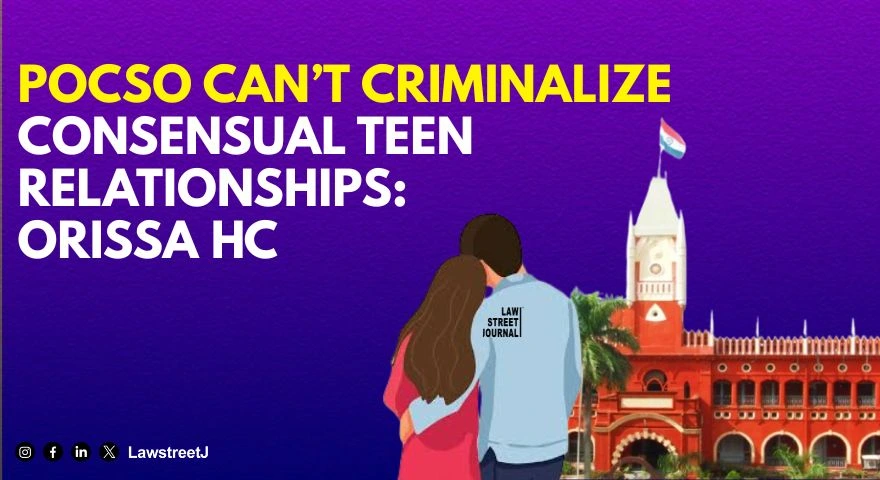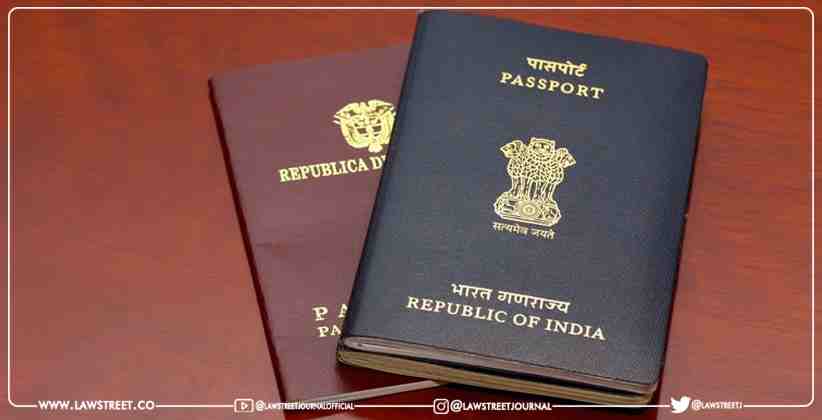Orissa: The Orissa High Court has delivered a landmark judgment, emphasizing that the Protection of Children from Sexual Offences Act (POCSO Act) cannot be weaponized to enforce outdated moral codes or to criminalize consensual romantic relationships between adolescents. The Court advocated for a more nuanced and contextual approach in such cases.
A bench comprising Justice Dr. S.K. Panigrahi heard the matter in which the petitioner sought interim bail in connection with allegations under Sections 376(1), 376(2)(n), 313, 323, 294, 417, 344, 506, and 34 of the Indian Penal Code, read with Section 6 of the POCSO Act. The allegations arose from a complaint accusing the petitioner of exploiting a minor since 2019.
The complaint alleged that the petitioner had established physical relations with the complainant under the false promise of marriage while she was a minor, leading to a pregnancy in 2020 that was allegedly terminated by him.
The Court noted that, following intervention by local mediators, “the matter has been amicably resolved between the parties” and “the families of both sides have mutually agreed that the petitioner shall marry the informant.”
Addressing the legal framework, the Court observed, “The present case requires a more nuanced and contextual approach rather than a mere mechanical application of statutory provisions.”
The Court emphasized a critical distinction, stating, “It is not the purpose of the law to criminalize youthful romance when both parties are nearly of the same age and there exists no apparent element of coercion, exploitation, or abuse of trust.”
In its analysis, the Court further noted, “The allegations, though serious in their statutory framing, arise out of a consensual relationship between two individuals who are very close in age and shared a personal bond prior to the filing of the present case.”
The Court drew inspiration from comparative jurisprudence, referencing “Romeo and Juliet clauses recognized in various jurisdictions,” which acknowledge that not all technical violations of age-of-consent laws are criminal in intent or effect.
Citing the Madras High Court judgment in Sabari @ Sabarinathan @ Sabarivasan v. The Inspector of Police, the Court highlighted concerns about how adolescent relationships, often stemming from mutual innocence and biological attraction, should be treated by the legal system.
Stressing the need to distinguish genuine exploitation from misuse of the law, the Court stated, “The Court must therefore distinguish between cases where a complaint reflects a genuine violation of bodily autonomy and cases where the law is invoked to discipline or deter consensual but socially nonconforming behavior.”
Underscoring the role of justice, the Court observed, “The criminal justice system should not be weaponized to punish emotional intimacy between peers simply because it offends the sensibilities of others.”
The Court granted interim bail to the petitioner for one month with conditions, including refraining from any criminal activity and not tampering with evidence, and directed the petitioner to surrender after the interim period.
Mr. Kshirod Kumar Rout, Advocate, appeared for the petitioner, while Mr. Pradipta Satpathy (ASC) appeared for the State of Odisha.
Case Title: Hamid Sha v. State of Odisha




![Orissa HC awards Rs 10 lakh to father who lost child to stray dog attack [Read Judgment]](/secure/uploads/2023/12/lj_3371_Stray_dog_menace.jpg)
![Orissa HC rules in favour of BJDs Lok Sabha MP Anubhav Mohanty in divorce plea [Read Judgment]](/secure/uploads/2024/01/lj_2524_Anubhav_Mohanty.jpg)
![Indian Courts this Week: Law Street Journal's Weekly Round-Up of SC & HCs [Jan 1 - Jan 6]](/secure/uploads/2024/01/lj_9050_WhatsApp_Image_2024-01-06_at_12.07.10_PM.jpeg)




